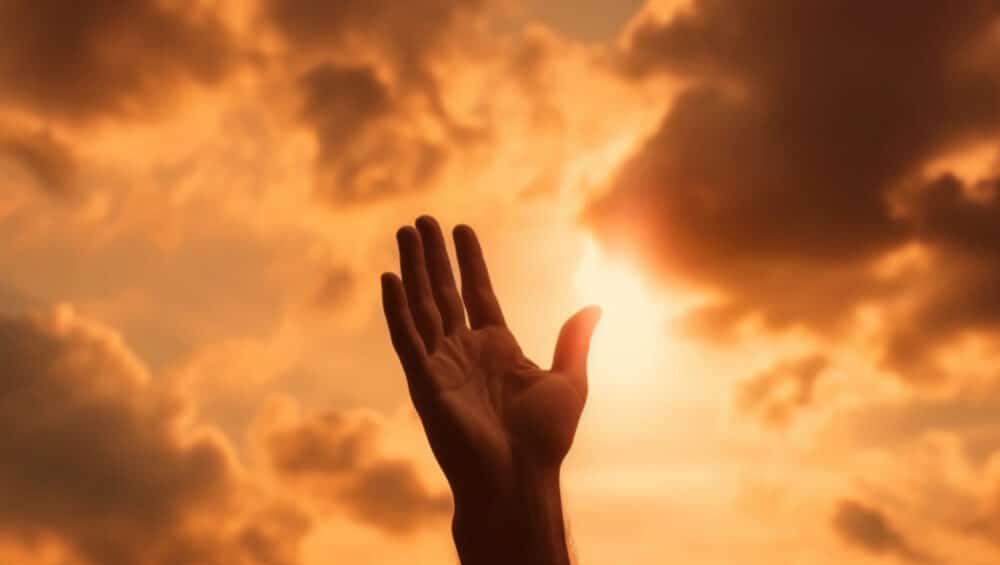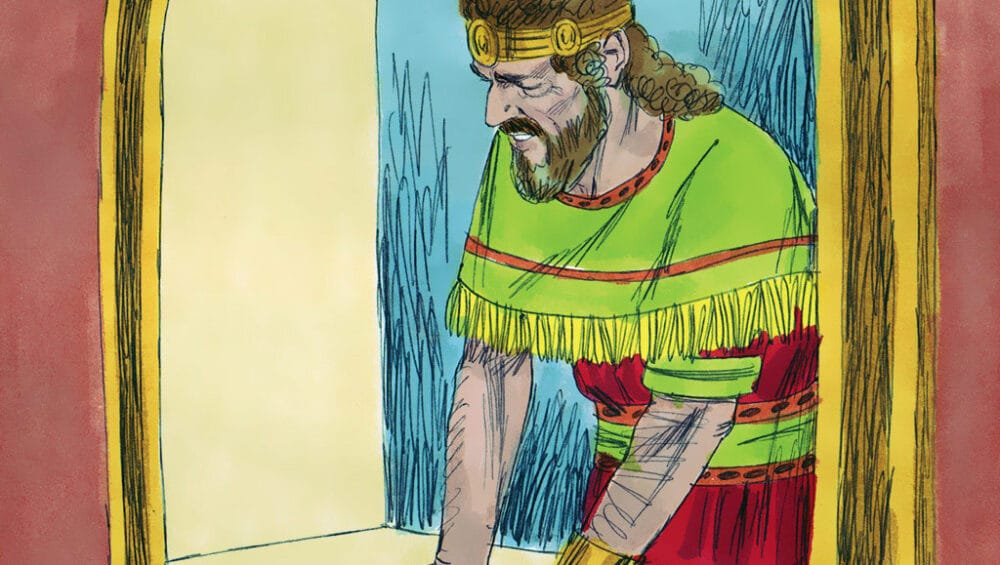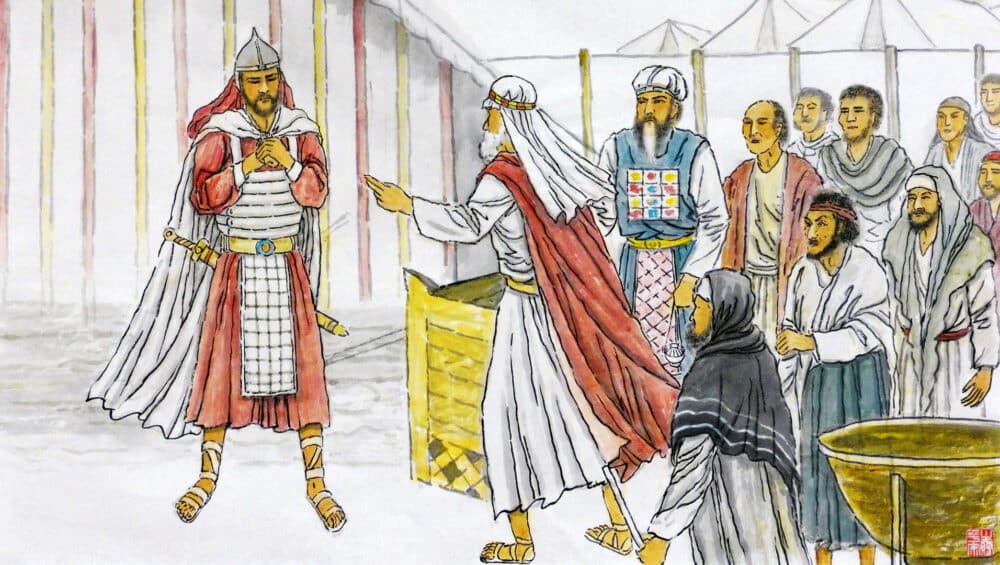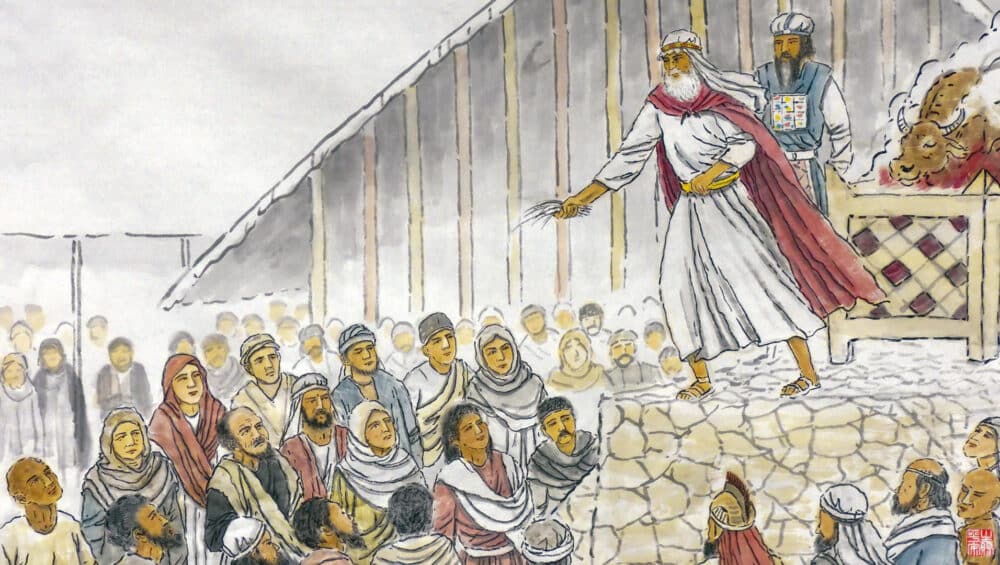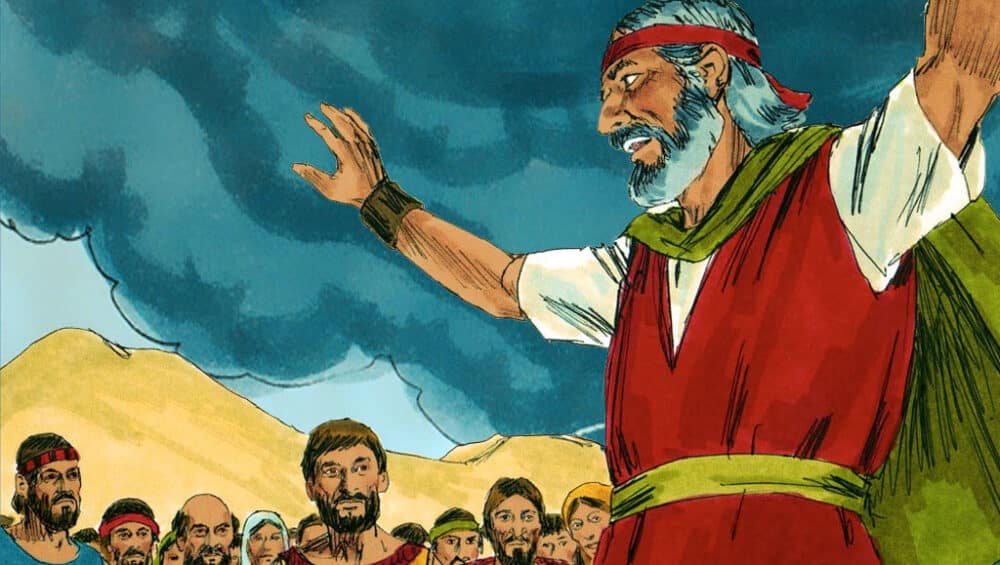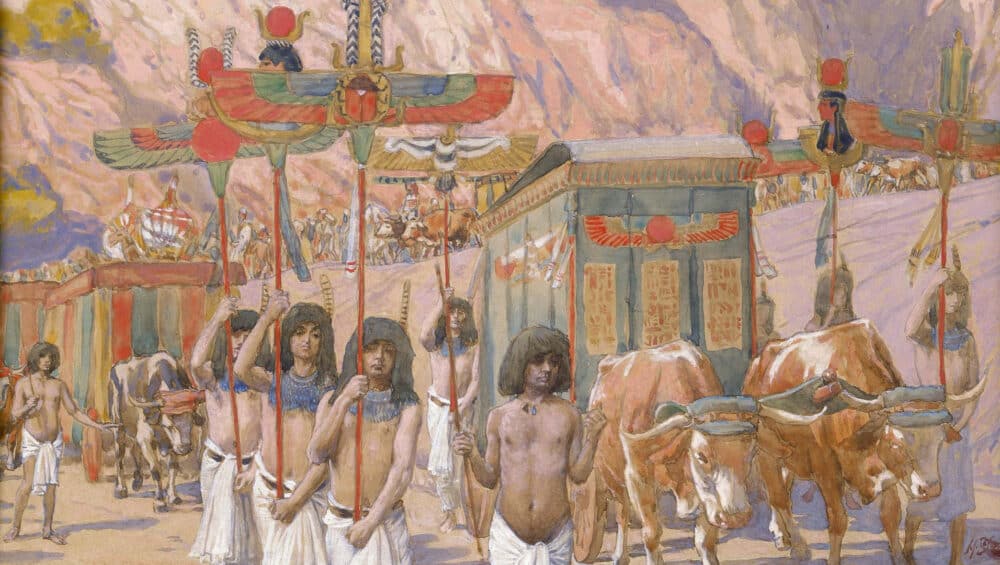Welcome to Livin’ Light’s Bible-In-A-Year challenge of discovering God’s love for us and His purpose for our lives. Here is the format for this great adventure: The daily reading assignment is posted at 5 a.m. After each day’s reading, Leigh An Coplin, the blog host, shares observations and poses questions about difficult passages to Rob Fields, who studied Christian Education at Asbury Seminary and currently teaches Biology in the Orlando area. To start from the beginning, click on 365 Bible Readings and scroll down to Day 1. The reading schedule is taken from The One Year Chronological Bible NLT.
Today’s Reading
— Psalms 61-62
— Psalms 64-67
(~979 BC) Click here for a timeline of the entire Bible.
Questions & Observations
Q. (Psalm 62:1,12): I have been thinking about this first verse for a while now. I think about how this whole earth is interconnected. We ask God for something, but all the pieces have to be in place before the event you requested can be granted. Have you thought about how all of our lives are a wonderful web that affect one another? Also the last verse of this psalm brings up another question. My brother-in-law once said that if you believe Jesus is God’s son ,you’ll get into heaven. I heard the other day from someone that that is in fact true, but there are various treasures in heaven that are granted to those who have done God’s will. Is this true or do we need to wait for this nice bit of info?
A. Almost by the definition of our limited perceptions, we are incapable of seeing the “full picture” of what God is doing over the whole earth via His wonderful “web” as you put it. But sometimes, God graces us with the ability to see clearly the ways that He has been at work in the lives of various people, and I can tell you that those are some of the most precious memories of my time in ministry. To say the joy is doubled when that moment of clarity is shared with someone else doesn’t even begin to describe it.
One of my favorite Christian writers, Dallas Willard wrote an entire book about the life changes that happen in the life of a Christian called The Divine Conspiracy. It’s a very long but wonderful examination of the process of sanctification — the process of becoming more and more like Jesus. He basically states that your brother-in-law’s argument misses the ENTIRE POINT of the gospel message itself: the power of God is available to you right now, not just when you die, and to just coast through life hoping to “get into heaven” when you die is, frankly, an insult to the true gospel. It is not that your brother-in-law’s argument is technically wrong — I want that to be clear, especially if he’s a reader! — but rather that it misses the point. God desires us to not just go to Heaven when we die, but to BRING HEAVEN TO EARTH TODAY! We are called to proclaim what God has done, bring others to Christ and set them on the road of discipleship, mend a broken world in whatever ways we can, and grow to be more like Him. It is our right and, frankly, our responsibility as Christians. Will there be a “reward” for doing so outside of “getting into heaven?” I think you can already see how odd that sounds in light of what we’ve discussed. There are some hints of it that we will get to in Paul’s letters, but to me, the ultimate reward is doing so for the sake of the King Himself.
Q. (64:5): This does seem true today that evildoers can get a following much easier than those who do good works. Does it just seem that way because evil chatter is much more talked about than the good news?
A. What you’re describing is just one more example of the way that our fallen nature seeps into our everyday decisions: in many cases, we have a “bent” toward doing the wrong thing, following the wrong crowd, etc. Is it easier? Most likely. But that is all the more reason to see the evil in such things and do our best to flee from them.
Q. (64:7-10): It seems like this is a circling theme in the Bible that won’t stop: People sin, God comes down on them, the sinners see how mighty God is and turn to him for a short time, then are lured back to sin. You really have to keep your nose in the Bible or doing God’s work to fight the urge to go to the dark side.
A. I’m pleased to see that you’ve been able to track this as a major theme of Scripture, and I promise you that it will never change, in the Bible or in us.
Q. (65:4): What temple is David talking of? If it’s Heaven, it’s a wonderful thing to think about. Or, is it that if you follow God, you will enjoy more of God’s blessings on Earth?
A. God does not withhold His favor from those who do not follow Him (Matthew 5:45), so the main “benefit” that we can see of following Him is relationship with the Trinity itself. This can be, in and of itself, an amazing blessing.
Q. (66): This psalm opens with praising God. We praise God out of respect, reverence and the fact that it makes you feel good to be backing someone so awesome who created and cares for all things. But, does God desire praise?
A. In looking for a good way to answer this question, I came across this website that gives a great answer, check it out: https://www.desiringgod.org/interviews/does-god-command-our-praise-for-his-sake-or-ours
Q. (67:7): Do you believe that the United States is blessed by God? And, other nations see it and fear God?
A. One of the worst mistakes we can make as American Christians is to believe that we as a nation are UNIQUELY blessed by God TO THE EXCLUSION of other nations. (Does that make sense?) As the world’s most powerful and richest nation, we are clearly blessed by God, but this does not mean that we are in a unique relationship with Him as Israel was at this time — neither, for that matter, is the modern state of Israel. All of the covenant promises that are made by God up to this point, apply ONLY to the ancient nation of Israel and its people. We must be very careful about misapplying promises made to a particular people at a particular time, even if these promises give us great assurance and we do benefit from them. I personally greatly dislike those who claim that the U.S. is uniquely blessed by God, because such people rarely see that God has made no such promises to us via a covenant. Our covenant, sealed in the blood of Jesus Christ, is quite different. Want to know what it says? Note the words that are spoken to you the next time you are offered Communion or Eucharist. It’s one of the best summaries around.
For further insight: How does one prepare for taking communion? https://www.christianity.com/jesus/following-jesus/communion/examine-yourself-before-taking-communion.html
Shop: Christian shirts get noticed. Check out these conversation starters: https://livinlight.org/shop/
Tomorrow’s reading
— Psalms 68-70
— Psalm 86
— Psalm 101

